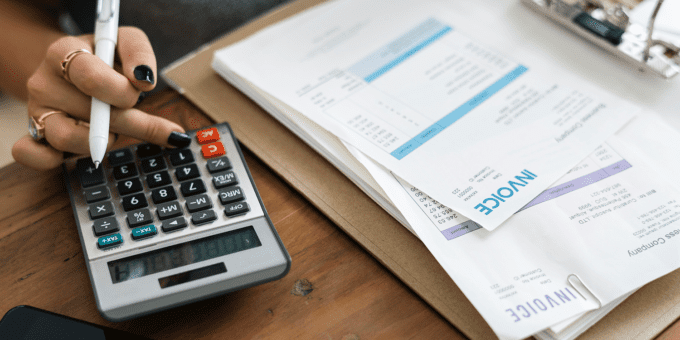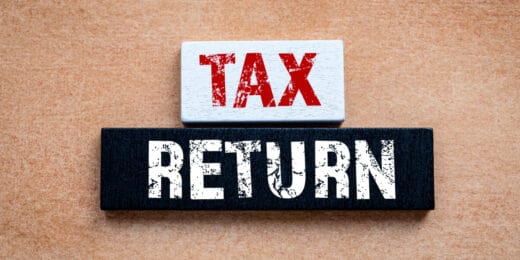Can you do the accounting for a limited company? The immediate response from most people would be a resounding “Absolutely not!” The thought of tackling receipts, paperwork, calculations, and taxes doesn’t bear thinking about. However, no legal restrictions prevent you from doing your limited company accounting.
If you have some prior accounting or bookkeeping experience and are confident in your ability to deal with your company’s finances, you may wish to do your own accounting. But if you’re at all unsure, you should appoint an accountant.
Key Takeaways
- Accurate record-keeping is essential for compliance and avoiding penalties.
- Choosing an accountant with industry-specific experience and notable qualifications can significantly benefit a limited company.
- Compare fees and services from multiple accountants to ensure you receive value for money.
Accounting for a limited company
Limited company accounting can be complex. If you run a company, all business income, expenditures, assets, and liabilities must be accurately recorded, fully disclosed, and traceable at all times.
Your annual accounts must be ‘true and fair’, and you must keep all business records for at least six years from the end of the accounting period to which they relate. Your accounting records must reflect this and provide details of the following:
- All the money the business receives and spends
- All assets owned by the company
- Any debts the business owes or is owed
- Inventory of stock owned by the company at the end of its financial year
- The stock takings used to work out the stock inventory
- All goods bought and sold by the company
- Who these goods were bought from and sold to, except retail trade
You will use these financial records to prepare full (‘statutory’) annual accounts, file Company Tax Returns, and pay Corporation Tax on all taxable income. If your company’s annual turnover exceeds the VAT registration threshold (currently £90,000), you must file VAT returns and pay VAT bills every quarter.
About limited company statutory accounts
Company accounts are due every year, regardless of whether a company is active or dormant. You must file annual accounts with Companies House within 9 months of your accounting reference date (ARD). This is usually the anniversary of the last day of the month in which your company was registered.
Statutory accounts must adhere to either International Financial Reporting Standards or UK Generally Accepted Accounting Practices, and they should include the following:
- A balance sheet (details of the value of everything owned by and owed to a company on the last day of its financial year)
- A profit and loss account (this provides details of a company’s sales, running costs, and the profit or loss it has made over the financial year)
- Any notes pertaining to the accounts
- The director’s report
- An auditor’s report (unless your company qualifies for audit exemption)
Dormant companies are required to prepare dormant company accounts (balance sheet and notes) for Companies House. There is no need to file accounts with HMRC unless a company becomes dormant after a period of activity.
About Company Tax Returns and Corporation Tax
Your company’s accounting period will determine the deadlines for filing Company Tax Returns and paying Corporation Tax. This period will usually begin when your business activities commence, and it will normally end on the company’s ARD.
Your Company Tax Return should be filed within 12 months of the end of the company’s financial year. HMRC requires all Company Tax Returns to be sent online. You must include form CT600, Corporation Tax calculations, and full statutory accounts.
You will be required to include information about capital allowances, gains on assets, directors’ loans, and any losses being carried forward from the previous accounting period.
HMRC penalties for late filing
HMRC will use all of this information to work out how much Corporation Tax your company owes. The deadline for paying Corporation Tax is 9 months and 1 day after the end of your company’s financial year. Be aware that the deadline for paying your tax bill falls before the deadline for filing your tax return.
If you possess the knowledge and aptitude to do your own accounting, you should be able to avoid any penalties. However, if you are in any doubt about your ability, we would urge you to use an accountant or tax adviser.
This may be an extra expense that you’d rather avoid, but it can be a false economy to do your own accounting if you don’t know what you’re doing.
Late annual accounts incur financial penalties from Companies House, ranging from £150 – £1,500. These fines will double if your accounts are late for two consecutive years. If you fail to file your accounts and make no effort to resolve the situation, you could be personally prosecuted and fined.
If you file your Company Tax Return late, HMRC will impose penalties ranging from £100 to 10% of any unpaid tax. Tax returns that are late 3 times in a row will incur a minimum fine of £500.
Finding a suitable accountant for your small business
Think about the nature of your business: many accountants specialise in certain industries and professions, so looking for an accountant who understands the type of business you run is worthwhile.
For many small businesses, a big accountancy firm that deals with large corporations would be an unlikely choice. It would be better to source an independent accountant who works predominantly with small businesses. This should ensure you receive equal treatment and don’t pay unreasonable rates.
Recommendations
Having a good relationship with your accountant is key. You need to trust them and their ability to do the job properly. It can be useful to ask friends and trusted acquaintances for recommendations, but don’t rely solely on someone else’s word – be sure to conduct independent research on any accountants you are considering.
Qualifications
Not all accountants require Chartered status; an accountant without these qualifications may be just as good. However, for your own peace of mind, it may be worth choosing one that has completed the rigorous professional training required by one of the following organisations:
- Institute of Chartered Accounts in England and Wales (ICAEW)
- The Institute of Chartered Certified Accountants of Scotland (ICAS)
- Chartered Institute of Management Accountants (CIMA)
- The Association of Chartered Certified Accountants (ACCA)
- Chartered Institute of Public Finance and Accountancy (CIPFA)
If you use a Chartered Accountant, you can be sure their knowledge and training is up-to-date and closely monitored. If your company requires an audit, you will have to use a Chartered Accountant registered as an auditor.
Fees
Compare costs and fees of different accountants; don’t just go with the first one you find. If you are new to using the services of an accountant, you may not be aware of the costs. Take some time to get some quotes before making your decision. High prices do not always mean better service. Likewise, low costs do not always result in value for money.
Will you pay an accountant fixed monthly or variable fees as and when work is done? Many accountants offer different fee structures, so ask about payment options. If you choose a pay-as-you-go type service, you can easily keep track of all of the work you are paying for. On the other hand, these costs could quickly mount up if you do not keep an eye on everything you are being charged for.
You may also be able to save some money by carrying out some simple bookkeeping tasks and maintaining a record of your expenses. This could save your accountant a great deal of time and, in turn, you could save yourself some money.
Organise a meeting
Upon finding an accountant that you would like to use, arrange a meeting and prepare a list of questions to ask. Ensure you are aware of all of your obligations and are happy with the services offered. This initial meeting presents an opportunity to get to know the person you will be dealing with and make a more informed decision.
Need any help?
If you would like to be put in touch with a reputable accountant, we would be happy to help. Simply add ‘Introduction to an Accountant’ to your basket during the online company registration process.
Alternativley, contact our London-based team and we will endeavour to have a chartered accountant call or email you within 48 hours.
Please note that the information provided in this article is for general informational purposes only and does not constitute legal, tax, or professional advice. While our aim is that the content is accurate and up to date, it should not be relied upon as a substitute for tailored advice from qualified professionals. We strongly recommend that you seek independent legal and tax advice specific to your circumstances before acting on any information contained in this article. We accept no responsibility or liability for any loss or damage that may result from your reliance on the information provided in this article. Use of the information contained in this article is entirely at your own risk.










Join The Discussion
Comments (10)
This article on accounting on limited companies was very helpful and will help Small business accounting UK
Thank you for your comment, David. We’re really glad to hear that you found the article helpful. Supporting small businesses with clear and practical information is what we aim for, so it’s great to know it’s making a difference.
Kind regards,
The Rapid Formations Team
HI Rachel,
I am working On finance and i want to start my own ltd company and i want to do accounting of my company.
what is process or do i need software to do accounting of my own company ?
Sonal
Thank you for your enquiry, Sonal.
If your company is registered for VAT, you will need to ensure that you use software which is approved by HMRC. You can find out more information about this in our Making Tax Digital blog, here: https://www.rapidformations.co.uk/blog/what-is-making-tax-digital-for-vat-and-how-will-it-affect-my-business/
With regards your annual accounts, there are many sophisticated bank accounts which can assist you with keeping track of your expenses, revenue and invoices, etc. We would recommend looking into a business bank account such as Countingup, which is one of our banking partners should you choose to form a limited company like us, which has accounting software built in. Alternatively, you can also pick up accounting software with the leading accountancy software providers Xero or Sage during a limited company application, and you can use these to carry out the accounting of your own company.
Alternatively, you can also request a free one hour consultation with an accountant with any of our limited company packages, and you can also ask them this very question. You may find that you are willing to spend money on accountancy fees to not have the hassle of carrying out this administrative task yourself, or risk getting it wrong.
I trust this information is of use to you.
Regards,
Rachel
Great advice thank you. 🙂
It would appear that CIPFA has been missed off from the list of chartered accounting qualifications? It is a CCAB member which CIMA currently is not a member of
Hi John,
Thank you for your message, John. I can confirm CIPFA has now been added to the list.
Kind regards,
Rachel
Some people take interest to do his company’s own accounting due to much knowledge in all accounting activities but they don’t do so because of lacking of proper guidance so they have to spend money to get accounting service. you are really helping such type of persons by providing detailed information about accounting service. really very useful information.
Hi John,
Thanks for your enquiry.
I’m afraid we do not offer accountancy services but we can put you in touch with a reputable accountant if this would be of interest?
Best wishes,
Rachel
Hello Rachel, I am Pratap, at Present I have only one freehold rented property in name of Private Ltd company. Rental is just £1200 per month. Where would I find information to carry out my own accounts presently done by an accountant. Your above information is very useful but I have not seen any sights for advice like many of solicitors & tenants advice one. Thanks